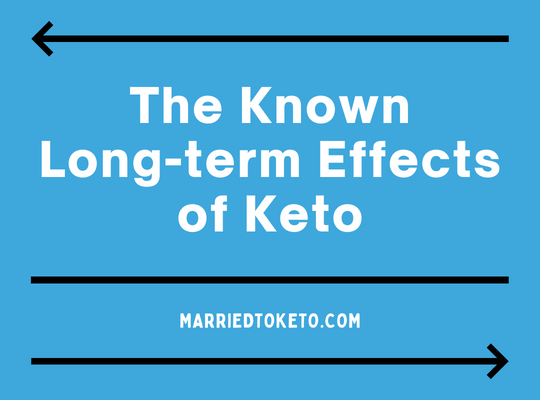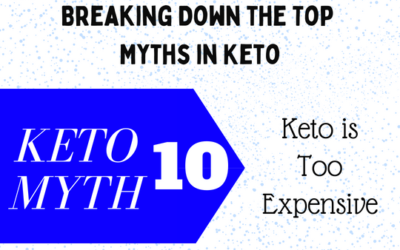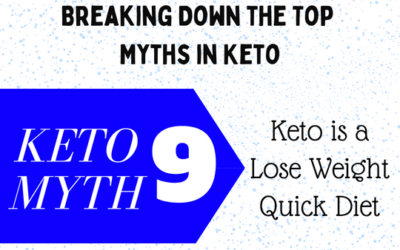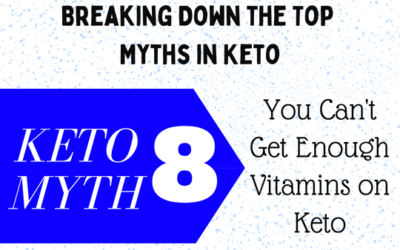This article falls under the keto myths category on the site, but by the end of your read you’ll say it feels more like a rant. A study on keto from 2021 is making the rounds again and has picked up some steam in the mainstream media. The study says that people on keto long term are more likely to suffer from heart disease, kidney failure, cancer, and several other deadly diseases. It makes for great headlines, but what does is really say about the long-term keto effects?
The Backbone of the Keto Effects Paper
The paper funded by the Physicians Committee for Responsible Medicine is the study of 100 peer reviewed papers on keto. Looking at the abstract and introduction it becomes clear that in a lot of the paper they are comparing apples to oranges. For instance, some of the people are on Atkins, some are on low carb, but most are less than 50g of carbs a day.
There are many people who will not be in the state of ketosis at 50g a day so that called the research into question right away for me. The papers that included are very technical in nature and I won’t sit here and say I went through all of them to verify but compiling scientific data should be based on subjects with a similar baseline and pattern. In this case we have a wide demographic that are often doing different diets.
The Results are Misleading
Based on what I just said above the results they published are automatically misleading. Based on these 100 papers the author has ascertained that people on a long-term keto diet are more likely to suffer from heart disease, kidney failure, dementia, diabetes, and cancer. The first question that wasn’t answered for me was, “more likely than who?”

The who is important because I can show you hundreds of thousands of papers that show all the above health issues are directly related to obesity. So, are they saying keto is more likely to cause this in perfectly healthy people? Let’s take those same people and tell them to gain 100 pounds. I think you will find that will cause the above at a much higher rate again.
The May and Could of Keto Effects
This is where things get interesting for me. I research this topic a lot and am taken aback at the lack of real evidence-based science on the effects of keto. There just isn’t a lot of documents out there with real proof of either the pros or cons of keto. Due to the exploding popularity of our beloved lifestyle that research is coming. In the meantime, we must deal with the “may” and “could” that science gives us now.
What I mean is. If you do a Google search right now for the long-term effects of keto, you will come across “keto may cause low blood pressure and kidney stones.” The next line is, “keto could lead to constipation and nutrient disease.” The definition of could is possibility. The definition of may is possibility. There is a major difference between possibility and fact.
Where Does This Study Fall
The study falls right in line with your Google search. The following line is from the author’s conclusion: “these diets may increase chronic disease risk.” May, could, and possible used throughout the work like any other keto “research” out there. That begs the question though of why this article is getting so much widespread coverage.
That could be as simple as timing. The article is from 2021 and keto has only grown since that time. With an increased uptake comes increased pressure on media to reach those people. It worked in this case. Keto Mom Kathy came marching right into the room to tell me about it. Didn’t take me long to debunk her fear.
My Parting Thought on the Keto Effects Paper
When looking at studies the first thing I do is check the funding. Did the money come from a wheat board or processed food company? In this case the money was clean, but one author did have a background that is worth noting. This particular author is a blogger for a plant-based diet blog. They were upfront in this affiliation, but guess what the paper’s recommendation was? Yep. Switch to a plant-based diet. We all have our bias, but at least I don’t wrap mine up in science to scare people.
Bill




